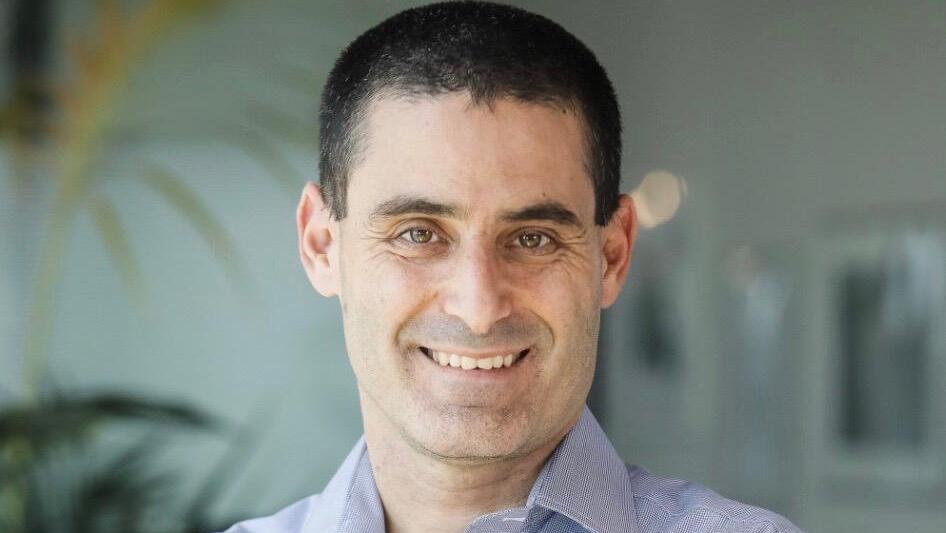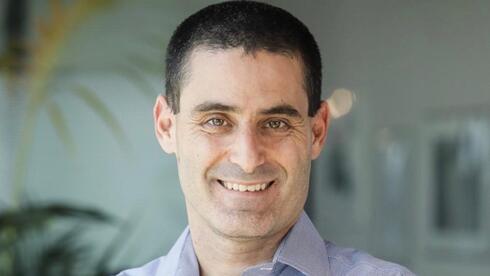
Interview
The Carelon phenomenon: Israeli tech helps US health giant go digital
In an exclusive interview, Udi Goori, GM of Carelon Digital Platforms Israel (formerly Anthem Israel) shares how Israeli healthtech startups help his company improve the lives of millions of Americans
Shakespeare asked, “What’s in a name?” But for Anthem Israel, which along with its giant American parent company just underwent a name change and a complete corporate rebrand, a name means a lot.
The name game
On June 28th, Anthem, ranked 20th on the Fortune 500 list and America’s second-largest medical insurance provider, officially became Elevance Health. The company serves more than 118 million people, almost 1 out of 3 Americans, with more than 47 million within its family of health plans including Blue Cross and Blue Shield plans in 14 states. Anthem Israel has also changed names and will be known as Carelon Digital Platforms while their Israeli Innovation Center has been rebranded as the Global Tech Partnerships Hub in Israel.
“I know it can be confusing at first,” admitted Udi Goori, General Manager of Carelon Digital Platforms Israel (formerly Anthem Israel), in an exclusive interview with CTech, “but the name change and the rebrand reflect an important transformation in what we are doing.”
Goori went on to explain that the new company name “Elevance” is a combination of the words “elevate” and “advance”, while “Carelon” combines the word ‘care’ with the suffix ‘lon’, which means full and complete. The new names are meant to reflect the company’s offerings beyond traditional health insurance, or as the company’s CEO Gail Boudreaux said in a statement earlier this year regarding the new name, "Elevance Health’s companies will serve people across the entire care journey, connecting them to the care, support, and resources they need to lead healthy lives.”
What is the ‘transformation’ your company is undertaking?
“About five years ago, Anthem, as it was known then, reached the decision that we needed to switch from a traditional health plan provider to something more. We needed to be able to connect those health plans to the other services we are bringing together for our members, namely digital services. This digital revolution and transformation is turning the company into an entirely different entity and hence the new names.”
Most health services realized this need to go digital as a result of the pandemic, but you’re saying Anthem saw it beforehand?
“I believe that the Covid pandemic was just an accelerator to the revolution in digital health. If you look into it, you’ll see that some of the early exploration around digital health started around 5-10 years ago, well before the pandemic ever hit. But through the course of the pandemic, digital health began to penetrate every family and home. Now with this acceleration, I think we are ready to transform and understand that digital technology is not just for innovation. It’s ready to be at the core of healthcare services like the ones we are delivering to tens of millions of Americans daily.”
What is the main problem with the current healthcare industry that you are trying to solve?
“In a word, ‘siloed’. For example, I know you recently interviewed the co-founders of the Israeli health-tech startup Vim. They are one of our six Israeli startups that we currently work closely with as strategic partners. As they explained to you, unlike in Israel, the healthcare system in America is built in a way where there is a separation between the insurance companies on the one hand and the health service providers on the other - and the data isn't shared in an effective manner between these sides. Systems and processes are isolated and detached from one another and it is the patient who ultimately suffers. Vim is solving for us the ‘last mile’ patient problem of connectivity by using Israeli technology. Now, by using us as a partner, Israeli cutting-edge technology such as Vim’s can get a pipeline straight into the U.S. healthcare system which will benefit tens of millions of American's across our giant health network. Vim is just one example of how we work with Israeli health tech startups to channel digital connectivity and remove the silos, for the benefit of the masses. The digital revolution is not replacing the doctor, it’s making sure that healthcare will finally be connected to enhance the entire system.”
So, you’re saying ‘so long to silos’?
“I wish it were that easy. You know I could cite a lot of other innovative technology, including remote care, that we have worked with that is doing amazing things in health tech, but even when we set it up and it works, the main problem is that the system is still siloed and disconnected. When we solve the ‘last mile’ issue of connectivity, even more Israeli tech will come to the forefront.
Also, this explains why Anthem became Elevance and we at Anthem Israel became part of Carelon Digital Platforms. This is so we can work together with Israeli startups like Vim and many others to make sure that this type of innovation is not siloed, but rather part of one larger vast platform that should serve our members 360, across their entire journey.”
What do you mean by ‘across their journey’ and ‘360’ care?
“It’s about ‘whole health solutions’. We tend to think of healthcare as purely ‘physical healthcare’, but when we do that we tend to ignore important things like mental health and behavioral health services. Another good example of topics we tend to ignore are health equity and social determinants of health and other services that we believe should not only be connected but should be part of one whole solution into health, a 360 degree solution, complete.
Remember, we are not just one company, we are connected to major health insurance providers in 14 states, including Blue Cross and Blue Shield, so we have a vast ‘community’ we are responsible for and we want to provide more than just physical healthcare - and that’s also what our new name reflects.”
Where does Israel fit into the story?
“We already spoke about connecting the silos and how Israeli startups, like Vim, help us do that. We also focus on preventative and predictive care and of course, continuous care because we believe that the real healthcare lies not at your doctor visits, but between them.
“Our company’s Israel story really got going about four years ago when Rajeev Ronanki, who is now the President of Digital Platforms, first came to Israel to visit and got excited when he saw firsthand the potential to utilize the talents of the highly-concentrated Israeli high-tech industry. That’s how I was first introduced to him. At the time I was pitching my own Israeli healthtech startup to him in the field of chronic disease management. So Anthem decided to double down on their commitment to Israel and begin strategic partnerships with select Israeli startups and establish a boots on the ground presence in the country which became Anthem Israel three years ago. Right now we have more than 40 associates here in Israel. Some of them are tech people, data science, tech leaders, and others are business and product and marketing leaders. This is so we can not only find the next big solution for Elevance, but also so we can work with them closely and integrate them into the Elevance Health Digital Platform. It’s amazing that just three short years later we have six strategic Israeli startups working with us, scaling, and providing great value to Elevance. By the way, we don’t just work with startups, we also cooperate with Israel’s top innovators in academia as well, the Weizmann Institute and the Technion. Elevance Health is currently the only player in this field with boots on the ground in Israel.”
Speedboat innovation
What other examples can you share?
“We believe the best way to innovate is from the bottom up, to start small, but move fast - what I like to call ‘speedboat innovation’. We work with many innovative healthtech startups such as K Health, which was strictly working in the local market when we met them. But through working with us over four years we now enable their digital AI-driven triage and symptom checker tool to be accessed by Elevance’s millions of members.
Another example is TytoCare which produces a handheld exam kit and app that lets you perform guided medical exams with a healthcare provider, anytime, anywhere. The company was very successful working with local HMOs such as Clalit in Israel and after two years of working with them we were able to integrate their system and scale it to the U.S., where we currently ship thousands of their devices (kits) to the U.S. Israel served as a great test case and we helped them get their solution to the American healthcare market.”
Related articles:
“We can’t do it alone”
So, what’s the key to success between Israel, the startup nation, and an American healthcare giant like Elevance?
“The key word I think is ‘together’. When a giant like Elevance understands that they need to work ‘together’ with small Israeli healthtech startups and Israeli academia in order to provide the best technology and innovation to better serve their members, it’s a very big thing. Of course, Israeli startups also need this pipeline to connect to the U.S. but it can only work if we do it together.”
